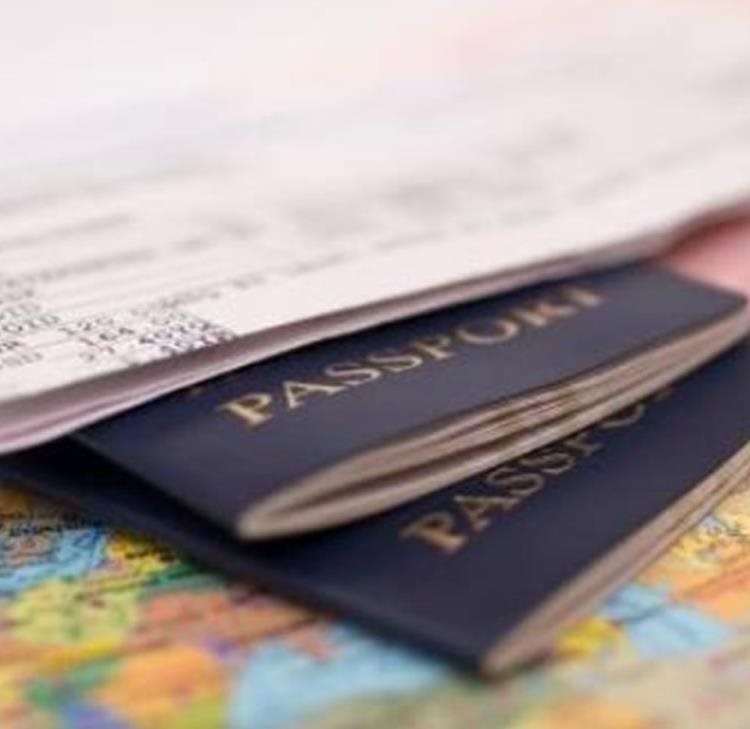
Immigration services for healthcare
When the UK left the European Union on 31 December 2020, it marked the end of free movement of EU nationals to live, work and study in the UK without prior permission. As a consequence, in order to treat both EU and non-EU nationals equally for immigration purposes, a new UK immigration system has been implemented which applies to all non-UK nationals entering the UK.
Under the Skilled Worker route, which includes the Health and Care Worker route launched in August 2020, qualified doctors, nurses and other health and adult social care professionals who wish to undertake an eligible job with the NHS, an NHS supplier or in adult social care can apply for a Health and Care visa if they meet the requirements of the route.
These changes significantly impact the way in which NHS Trusts and Health and Care organisations recruit foreign nationals. Employers need to understand the changes in anticipation of the impact on their workforce and to avoid delays be familiar with the immigration legislation and Home Office guidance to ensure compliance.
Failure to do so can result in sanctions or penalties which can severely impact an organisation’s reputation as well as its ability to hire foreign nationals.
Overview of services
We have set out over the following pages how we can assist in these areas to give an overview of some, but not all, of the work we do in the health and care sector. We would be delighted to discuss additional services required to see how we may be able to help.
- Training on the UK Immigration points-based system to your workforce, recruitment & selection personnel including specific training on Health and Care visa.
- Advising and assist with strategic workforce planning on recruitment of foreign nationals for your workforce.
- Skilled Worker Sponsor licence applications.
- Advice and assistance with meeting your duties as a sponsor under the Skilled Worker, Global Mobility and Temporary Worker categories.
- Immigration audit and compliance advice to ensure that you are complying with your sponsor duties and relevant legal requirements.
- Requesting and assigning Certificates of Sponsorship.
- Work with you to ensure HR processes and procedures are sufficiently robust and licence holders aware of their compliance duties.
- Ongoing sponsor licence support to ensure you comply with your sponsor duties.
Featured experience
NHS trust illegal worker
Advising an NHS trust on the prevention of illegal working and the fair dismissal of an illegal worker, leading to their successfully passing a UKVI audit.
Foundation trust immigration training
Providing training to a foundation trust on recent immigration changes and their obligations on the prevention of illegal working.
UK subsidiary of US-based company - how to secure visas
Providing advice to a UK subsidiary of a US-based company on how to secure visas for a number of its senior executives transferring from the US to the UK; We also provided advice on compliance with licence obligations, including changes to personnel on the sponsorship management system, as well as providing urgent support on UKBA Compliance and document checking, resulting in a successful UKBA audit [2012].
Advice on complex whistleblowing and grievance investigation
We worked with an NHS Trust dealing with a sensitive grievance and concerns raised by a member of staff under the Freedom to Speak Up route. We have worked closely with the Trust in identifying suitable commissioning managers to oversee the investigation process ensuring that a suitably independent and trained investigator was appointed and also assisted with drafting complex Terms of Reference for the process to undertake the investigation.
Our significant experience in this area has allowed us to provide both a legal and regulatory perspective which ensured that the Trust responded in accordance with the potential risk of legal action in an Employment Tribunal. From the regulatory perspective, our advice was based on best practice guidance from the National Guardian’s office, relevant codes of practice and key aspects of learning from the recent West Suffolk review for the entire NHS.
Working as part of a much wider health law team, we have been able to offer advice to our client regarding the GDPR and public law issues (defamation, injunction and privacy) alongside HR and employment advice. This has enabled the Trust to have assurance that serious concerns have been looked into and that any appropriate further processes under disciplinary, Dignity at Work or MHPS processes were kept under consideration as part of effective decision making.
Related expertise
Key contacts

Jacqui Atkinson
Head of Employment Healthcare
Testimonials
"The knowledge of the team as a collective on the different areas of law. Jacqui Atkinson – I have built up a very good client relationship with Jacqui over the years. I find Jacqui very responsive and knowledgeable and she provides her advice pragmatically to fit the situation. I am confident in the advice Jacqui provides and Jacqui is always my go to person when I require legal advice."
You may be interested in...
Legal Update
Right to work update: eVisas
Press Release
A review by the Migration Advisory Committee into the UK’s graduate visa route for international students
Opinion
Increase to 20 hour limit on supplementary employment for Health and Care Worker visa holders
Opinion
Right to Work Checks: Changes from 6 April 2022
From 6 April 2022, right to work checks on all migrant or settled prospective employees must be online and checks on British or Irish nationals will be manual (free) or digital (charged for).
Opinion
The new point-based system: a complex and costly system in need of simplification
The immigration control tools now being used by the UK government which combine high costs, complex application system, salary threshold and exclusion of low skilled worker are having a significant detrimental effect on the business ability of UK based companies to employ EEA staff in the UK.
Opinion
All change? Nationality and Borders Bill
Whilst the Bill still has to clear the House of Lords, there is a great concern over the impact of the Bill.
Legal Update
Covid-19 adjusted right to work update
Advice for employers carrying out right to work checks has been updated as a result for Covid-19, replacing 18 June 2021 guidance.
Opinion
New Visa routes announced - UK Innovation Strategy
One aim of the Innovation Strategy is to generate innovation through new Visa routes - what does this mean for UK businesses?
Opinion
Graduate Visa: new immigration route launched
The new Graduate Visa is now live. The route is available to overseas students who have completed a degree at undergraduate level or above and have a visa as a Student in the UK at the time of application.
Legal Update
EU Settlement Scheme: deadline to apply 30 June 2021
How organisations can support their EU national employees with EU Settlement Scheme applications with the ‘grace period’ ending 30 June 2021.
Legal Update
Right to work: updated guidance 18 June 2021
Reminder for employers that 'An employer's guide to right to work checks' has been updated for the end of the grace period on 30 June 2021.
Opinion
The frontier worker permit
All EU citizens who were not residing in the UK by the end of December 2020 and want to live and work in the UK from 1 January 2021 must apply for a visa as a result of Brexit.
Opinion
Right to work checks change to temporary Covid-19 adjustment date to 20 June 2021
The Home Office have announced that it will end their temporary adjustments to the process of checking an individual’s right to work in the UK on 20 June not 17 May 2021 as initially planned.
Opinion
The UK - India migration deal
The Young Professionals Scheme will make it easier for young Indian citizens and young Britons to access visas.
Legal Update
Immigration: statement of changes – March 2021
The Home Office have published a new statement of changes to the Immigration Rules to take effect on 6 April 2021.
Opinion
New visa for British National (Overseas) (‘BNO’) Status holders
Hong Kong’s British National (Overseas) passport holders and their immediate dependants will be able to apply under a bespoke visa route opening from 31 January 2021.
Opinion
Immigration rules post Brexit
Free movement between the UK and the EU ended on 31 December 2020. Since 1 January 2021, a new points-based immigration system applies to all migrants wanting to come to the UK, whether they are EU citizens or not.
Guide
Brexit overview: your people and Brexit
Despite the uncertainty, however, we can help you take some sensible steps now to prepare your workforce for the implications of Brexit.
Legal Update
EU Immigration: two-fifths of businesses will not reallocate low-skilled roles to new British workers after new immigration regime in place
From 1 January 2021, freedom of movement between the UK and EU will end and the UK will introduce an immigration system that will treat all applicants equally, regardless of where they come from.
Legal Update
Q & A: UK’s new immigration system: how will it impact EU Nationals and their employers?
On 31 December 2020, free movement of people will cease to operate in the United Kingdom as a new immigration system will be introduced from 1 January 2021 and the government has provided further details of the new system on 13 July 2020.
Legal Update
Immigration: further details published
This month has seen Further Details of the UK’s new Points-Based Immigration System published.
Legal Update
The impact of the Covid-19 distancing measures on right to work checks
In unprecedented times of self-isolation and social distancing, the Home Office has now published new UK immigration guidance on right to work checks to adjust the rules on manual checking of original documentation and adapt to the new situation.
Legal Update
Points-based Immigration System
The UK government has now unveiled its proposed points-based immigration system which will come into operation from 1 January 2021.
Legal Update
Brexit - The treatment of patients from the EU
To date patients from the EU have been able to benefit from reciprocal healthcare arrangements, including the EHIC, S1, S2 and S3 arrangements, which allow EU and EEA nations to freely access health and social care services in other member nations as if they are resident.
Legal Update
The new Points Based System - the Government begins consultation with selected groups
It was announced on 17 June 2019 that the UK Government will start discussions with 5 new advisory groups in preparation for the new skills-based immigration system that will be introduced following the UK’s departure from the European Union.
Legal Update
Children in care and immigration
When dealing with children with care and immigration issues, both the Family Court and the Immigration Tribunal must act in the child’s best interests.
Legal Update
Headline Brexit issues for the energy sector
In this update, we review various aspects of a ‘no deal’ Brexit and the Withdrawal Agreement which organisations in the energy sector should know about.
Legal Update
How will Brexit affect businesses from an immigration perspective?
Legal Update
Changes to Tier 1- Introducing the New ‘Innovator’ and ‘Start-up' visas
The Home Office recently announced substantial changes to Tier 1 of the PBS.
Opinion
Extension to exemption from Tier 2 visa salary threshold for STEM and Mandarin teachers
The Government has announced that the current exemption from the £30,000 minimum salary threshold for Tier 2 (General) sponsored workers in a number of public service professions has been extended.
Legal Update
Further update on EU immigration in the event of No-Deal
The Government has recently provided new guidance for EU nationals coming to the UK in the event of a no-deal Brexit.
Guide
Summary of main duties and responsibilities as a Tier 2 (General) Licensed Sponsor
We have set out below a summary of the main duties and responsibilities that you will have to the Home Office, once you have successfully obtained your Licence to Sponsor.
Opinion
Home Office to modernise right to work checks
In April 2018 a Right to Work Checking Service was launched to allow individuals to demonstrate their right to work in the UK. Individuals are currently able to review their right to work record online and share a code with their employer to allow them to gain access to the record.
Guide
Overview of the UK immigration system
Non-EEA or Swiss nationals must score a specified number of points to come and work, set up business, or study in the UK.
Guide
Business visits to the UK - permitted activities
The following is an extract from the current UK Immigration Rules and outlines which activities are permitted whilst in the UK on a business visit for the most common types of visits that we come across.
Legal Update
Modern Slavery Act 2015 update – proposed changes to section 54 requirements
Section 54 of the Modern Slavery Act 2015 now requires any commercial organisation which supplies goods or services in the UK and has an annual turnover of £36m or more to publish an annual slavery and human trafficking statement.




